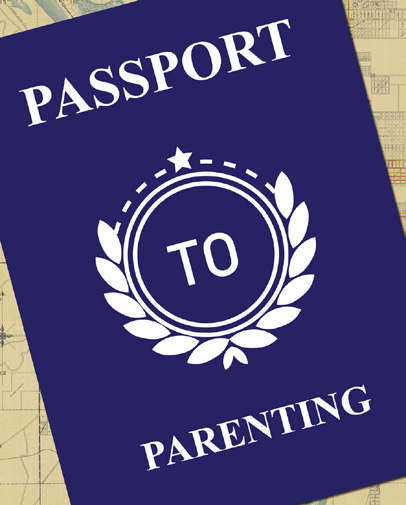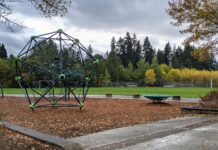BY KIM DEMARCHI
Parents ask me frequently what they can do so that their children have self discipline. Parents need to provide opportunities for meaningful roles and contribution in the family for children to develop the skills toward self discipline. Parents usually have great intentions, and sometimes they do things that support the development of self discipline, and sometimes they do things to actually discourage self discipline.
What IS self discipline and why is it important to develop it in children? Self discipline is an important skill, habit or muscle for our children to have in life for success. It’s:perseverance, restraint, endurance, thinking before acting, finishing what you start, having the ability to carry out your plans despite the obstacles, delaying instant gratification, and knowing what is right and wrong for yourself.
There are Barriers and Builders to communication. As parents, we want to focus on using the Builders, but we should also understand how we might be using too many Barriers, which can hinder the development of self discipline.
BARRIER 1: ASSUMING
Assuming we know what our children are capable of (or not capable of)
And
Acting on limiting assumptions (about what our children can or can’t do, say, think, etc…)
Say things like:
“I didn’t tell you because you always get upset.”
“You always think that _________.”
“You’re too young to try that!”
Builder 1 Checking
Check out what our child knows, is ready to learn or can do
And
Giving people a clean slate.
Say things like:
“How do you want to deal with this?”
“What are your thoughts about ______?”
“What will you need to have ready for ________?”
Examples – A child gets into his carseat. Instead of just buckling him up and saying something about him being too young to do it, you could just say, “Do you need me to do anything?” We often make assumptions with foods. “She doesn’t like anything with mushrooms in it.” There is a chance that she will feel this way for the rest of her life, but it is a limiting world view that what I preferred yesterday is what I will prefer today. Give your child freedom to learn, to try new things.
BARRIER 2: RESCUING or EXPLAINING
Parents often step in prematurely to take care of problem solving for their children without letting them discover the meaning on their own.
And
We don’t let them think through a problem and we just give them the answer which robs them of their learning opportunities by rescuing.
Say things like:
“______ is what’s happening, why it’s happening, and how to deal with it.”
“Do it this way.”
“You’d better fix it by doing _____.”
Builder 2 Exploring
Parents ask questions and encourage their children to work on things, discover and problem solve which conveys a belief in their ability to solve their problems.
And
We allow their solutions, even if they’re not what we would do, because they will learn from the consequences.
Say things like:
“What did you experience in that situation and why is that significant?”
“What is your understanding of what was happening and what may have caused it to happen?”
“How might you apply what you have learned in the future?”
Example – A child doesn’t want to eat lunch. We know that when she doesn’t eat, she gets crabby. Rather than forcing her to eat, or being a short order cook, we can help her to learn the lesson for herself and let go of the outcome. It is more important that she learn the lesson and that it is HERS, than that a few afternoons go smoothly. “I’ve noticed that in the past when you don’t eat lunch, you seem to get grumpy and really hungry later. I’m wondering what the rest of the afternoon is going to look like if you choose not to eat lunch now.” Then, if she chooses not to eat and gets crabby, EXPLORE, don’t EXPLAIN or say “I told you so” or “see what happens when” or “you should have listened to me”.
BARRIER 3: DIRECTING (tell)
Parents micromanage by telling their child what to do.
And
It’s much easier and efficient to take over or do it myself.
Say things like:
“Pick up your shoes, put that away, be sure to drink your OJ before you leave, don’t forget your lunch.
And then we wonder why they aren’t following our orders or they alter them ever so slightly to assert their independence.
Builder 3 Encouraging/Inviting (ask)
Parents ask for participation or assistance.
And
Invite them to contribute and think through problems.
Say things like:
“I would appreciate any help you could give me in straightening up the room.”
“How do you plan to _________?”
“What will you need to do in order to _______?”
Example – Adults in a meeting and at the end the person in charge says something about remembering to throw their cup in the garbage. People don’t like to be directed on what to do, especially on the simplest of tasks. Most left their cups on the tables. On the flip side, if the person in charge says something like “If you have an extra minute I’d really appreciate anything you can do to help prepare the room for the next group, thank you.”Guess what they did?
BARRIER 4: EXPECTING PERFECTION (too much too soon)
Parents set high standards for their kids, demand that they meet them, and then point out when they don’t.
Say things like:
“I was expecting this room to be spotless.”
“You should know how to do that already.”
“I appreciate _______, but you forgot ________.”
Builder 4 Celebrating Progress
Parents focus on effort, progress and what was gained by trying.
And
Celebrate any movement the child made in the right direction- will get more results.
Say things like:
“I appreciate the effort you have made to clean up this room.” (NO BUTS)
“What did you learn from trying to do that?”
“What progress do you see yourself making?”
Example
I really appreciate that you sorted your laundry into the three colored piles in the hallway ~ thank you. Leave it at that. Keep it at recognizing the progress and improvement from just having one mixed pile. Another time, you can say something about the piles in the hallway are getting stepped on…..what is your plan with them now?
BARRIER 5: ADULTISMS
An adultism occurs when parents forget what it is like to be a child and then we expect, demand, and require the child, who has never been an adult, to think, act, and do as an adult.
Say things like:
• “When will you ever listen? How many times must I tell you?”
• “Why are you being so childish? Grow up!
• “What were you thinking?!? Did you THINK that was a good idea?”
Builder 5 Respect
Parents allow for their child’s uniqueness and individuality.
We get on our child’s level and understand their thought process and respect it.
Say things like:
• “What is your perception of ________?”
• “What was your understanding of what needed to be done?”
“In what way do you think that contributed?”
“What do you think would happen if…”
Example – Cleaning up toys. Instead of “How many times do I have to tell you to clean up your toys?! Geez…. grow up already!” Try: “What was your understanding of what needed to be done with your toys? What do you think might happen if your baby brother gets ahold of those little farm animals? Maybe we can do a room check to see what toys aren’t in their homes.”
When parents do nothing but cut down on or remove the communication Barriers, the relationship with their children will improve greatly. Can you imagine then learning how to use the positive and respectful communication Builders? Consider all the the Builders “on the job training for in life”! By using the Builders, you will be setting your child up on a successful road to self discipline.

Kim DeMarchi, M.Ed., Certified Parent Educator and Certified Family Coach, is a Tualatin resident, married with 15 year old boy/girl twins, and has been an educator for more than two decades. Kim is trained and certified through Positive Discipline, as well the International Network for Children and Families in a program called Redirecting Children‘s Behavior. Kim is active in supporting her local parenting community by providing workshops, coaching families and writing articles for our newspaper. Kim is a monthly guest on KATU’s AM Northwest. She also blogs twice a month for Knowledge Universe’s Kindercare online community. Kim’s goal for you is to help reduce conflict, foster mutual respect, and create deeper communication and connections with your loved ones. She can be reached through www.EmpoweredParenting.com.



















